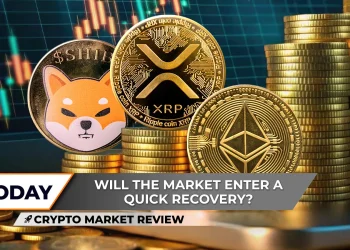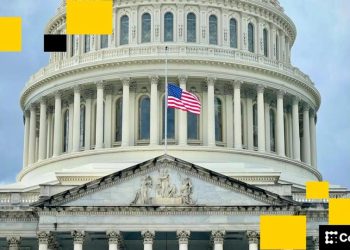TLDR
- Upbit’s 24-hour volume fell 12.8% to $2.02B as Korean traders exit crypto.
- Nvidia and Samsung plan AI megafactory using 50,000 Nvidia GPUs.
- Retail investors in Korea now favor AI-linked stocks over digital assets.
- Nvidia’s $5T value drives Korean investor shift from volatile crypto.
Retail traders in South Korea are moving money out of cryptocurrencies and into tech stocks, especially those tied to artificial intelligence. The shift is clear as trading volumes on Upbit, the country’s largest crypto exchange, drop sharply. Meanwhile, investors are showing rising interest in Nvidia and Samsung, particularly after both firms announced an AI megafactory project. This reflects growing investor preference for long-term industrial growth over short-term digital asset speculation.
Crypto Trading Volumes Decline on Upbit
Upbit, the leading cryptocurrency exchange in South Korea, recorded a 12.8% drop in trading volume as of October 31, 2025. According to CoinGecko data, its 24-hour volume fell to $2.02 billion, reflecting a continued decline seen over recent months.
Despite listing 293 coins and offering 636 trading pairs, activity on the platform has slowed. The platform still maintains a Trust Score of 8/10, but retail interest appears to be moving elsewhere. Analysts believe that this shift is not random but points to a wider transition in investor behavior.
Many market watchers believe Korean traders are reducing exposure to crypto because of ongoing volatility. This movement away from speculative assets seems to reflect a growing interest in stable, innovation-driven investments.
Growing Interest in AI-Linked Equities
Investors are now looking at companies involved in artificial intelligence, including Nvidia and Samsung. The growing partnership between the two firms has become a central focus for Korean traders, especially after the announcement of an AI megafactory project.
The upcoming facility will use 50,000 Nvidia GPUs to automate manufacturing processes. Samsung stated the project aims to unify design, process, equipment, and operations within one intelligent network. This collaboration supports South Korea’s broader AI strategy and national technology goals.
During a recent event in Seoul, Nvidia CEO Jensen Huang appeared alongside Samsung Vice Chairman Lee Jae-yong. Attendees held up smartphones showing Nvidia and Samsung stock tickers, replacing the usual crypto charts. This public display was widely shared online, signaling a new direction for Korea’s retail trading community.
National Strategy Drives Retail Behavior
South Korea has been investing heavily in AI development as part of a national strategy to modernize its industries. The government, along with major tech firms, is working to deploy 260,000 GPU units for AI development.
Retail traders appear to be aligning their investment choices with these developments. Analysts such as AB Kuai Dong noted that “Korean crypto investors didn’t disappear; they just moved next door—to the stock market.”
By investing in AI-linked equities, Korean traders are following national efforts and participating in large-scale corporate innovation. This shift also offers more stability and predictability than the often-unsteady crypto markets.
The move from digital assets to tech equities is supported by the belief that AI-related infrastructure will continue to expand. Nvidia’s market value has also reached $5 trillion, further building investor confidence.
Retail Rotation Reflects Search for Stability
As the crypto market remains volatile, with total market cap standing at $3.8 trillion, retail investors are pursuing safer opportunities. Stocks tied to technological development are now gaining more attention, particularly those connected to government-backed projects.
The contrast between crypto and AI-led industries has become more pronounced. Traders are opting for companies that show strong fundamentals and future growth potential. The popularity of Nvidia and Samsung shares reflects this rotation.
Trading behavior in South Korea may be changing in line with broader global trends. Many investors are turning to artificial intelligence as the new engine for long-term financial growth. As a result, retail trading patterns continue to evolve with national economic goals.

















